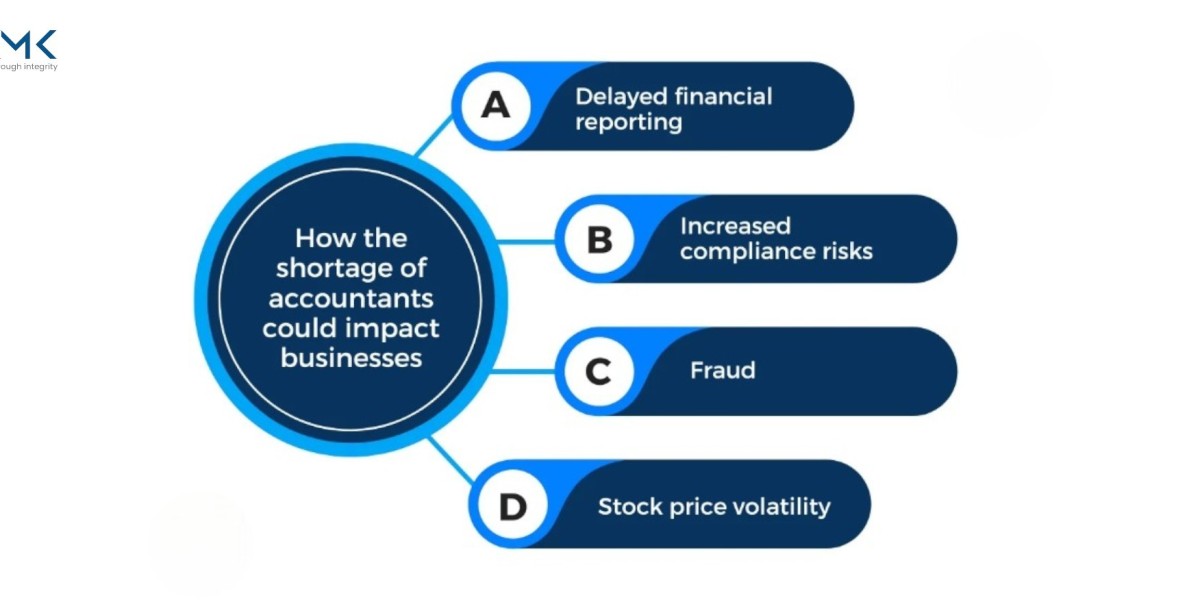Tax season in the US is notorious for long hours, tight deadlines, and never-ending paperwork. For many accounting firms, it’s an all-hands-on-deck period that pushes teams to their limits. But what if there was a way to handle the heavy workload without overworking your local staff or sacrificing quality? That’s exactly where offshore services for accounting firms come into play. By leveraging skilled offshore professionals, US firms are finding smarter, faster, and more cost-effective ways to navigate the busiest time of the year. In this guide, we’ll explore practical tax season hacks powered by offshoring accounting services so your firm can deliver more while stressing less.
Why Offshoring is a Game-Changer During Tax Season
Tax season work is often a mix of repetitive, process-driven tasks and high-level advisory work. The repetitive side—data entry, document review, reconciliations—can easily be delegated to trained offshore teams.
Key benefits of offshoring for tax season:
Extended Workforce: Offshore teams provide instant capacity without long-term hiring.
Time Zone Advantage: While your local office sleeps, offshore staff can prepare files for next-day review.
Cost Efficiency: Lower labor costs allow firms to reinvest in client service or technology upgrades.
Specialized Expertise: Many offshore professionals are trained in US tax codes, IRS requirements, and accounting software like QuickBooks, Xero, and Drake.
Hack #1: Pre-Tax Season Data Cleanup
Before tax season officially starts, offshore teams can help with data preparation so your in-house staff isn’t scrambling later.
Tasks to offshore before the rush:
Reconciling accounts and bank statements
Reviewing expense categorization
Updating client financial records
Organizing digital files for easy access
By the time tax season hits, you’ll have clean, organized financials ready for fast turnaround.
Hack #2: Delegate Bulk Tax Return Preparation
Filing multiple returns for individuals and businesses can drain valuable hours. With offshoring accounting services, you can offload much of the data gathering and initial return preparation.
Typical offshore responsibilities:
Importing client financial data into tax software
Preparing draft returns for CPA review
Flagging missing or inconsistent information
Generating supporting schedules and forms
This allows your senior staff to focus on reviewing and approving returns rather than starting from scratch.
Hack #3: Streamline Client Communication
During tax season, client inquiries can overwhelm phone lines and inboxes. Offshore teams can assist by managing communication channels.
Offshore communication support can include:
Responding to basic tax filing questions
Scheduling client appointments
Sending reminders for document submissions
Tracking document receipt and completion status
This not only reduces stress for your local team but also keeps clients informed and engaged.
Hack #4: Use Offshore Teams for Compliance Reviews
Compliance is non-negotiable during tax season. Offshore staff trained in US compliance standards can review reports, ensure forms are correctly completed, and flag potential errors early.
Benefits include:
Reduced risk of costly mistakes
Faster corrections before submission deadlines
Increased confidence in accuracy and compliance
Hack #5: Manage Seasonal Workload Without Overtime
Overtime is often seen as unavoidable during tax season, but offshoring can help spread the workload across multiple time zones.
Example:
Your US team finishes work at 6 PM. Offshore staff in a different time zone picks up where you left off, making progress overnight. By morning, your in-house team has updated files and completed drafts to review—no late nights required.
Hack #6: Offer Extra Services Without Extra Stress
Many firms shy away from offering additional services during tax season due to capacity limits. With offshore services for accounting firms, you can continue to offer:
Tax planning consultations
Business advisory sessions
Payroll and bookkeeping support
Financial statement preparation
This means you can grow your revenue during the busiest period instead of just surviving it.
Case Study: How One Firm Doubled Output
A New York-based CPA firm partnered with an offshore provider two months before tax season. Offshore staff handled initial return preparation, reconciliations, and client follow-ups. The results were impressive:
Return processing capacity increased by 95%
Client satisfaction scores rose due to faster turnaround
Partners were able to focus on high-value advisory sessions
The firm not only met all deadlines but also onboarded new clients during peak season—something they had never been able to do before.
Best Practices for Offshoring During Tax Season
To maximize results, follow these steps:
Start Early – Begin offshoring setup before tax season to avoid a rushed onboarding.
Document Processes – Use Standard Operating Procedures (SOPs) for consistency.
Use Secure Technology – Cloud-based accounting software and encrypted file-sharing keep data safe.
Maintain Clear Communication – Daily or weekly check-ins keep teams aligned.
Prioritize Quality Control – Have a final review step before filing.
Overcoming Common Concerns
Some firms worry about accuracy, data security, or client perception when using offshore services.
Accuracy: Use a trial project to test quality before peak season.
Data Security: Choose a provider compliant with SOC 2, GDPR, or ISO standards.
Client Perception: Position offshoring as a way to deliver faster, better service without extra cost.
The Bottom Line
Tax season doesn’t have to mean burnout and endless overtime. With offshore services for accounting firms, you can transform your approach—shifting routine, time-consuming work to offshore teams while your in-house staff focuses on strategic, high-value client work. By starting early, documenting processes, and maintaining strong communication, you can make offshoring accounting services a powerful tax season hack that delivers better results for both your firm and your clients. The firms embracing this model aren’t just surviving tax season—they’re thriving, growing, and turning their busiest months into their most profitable ones.






